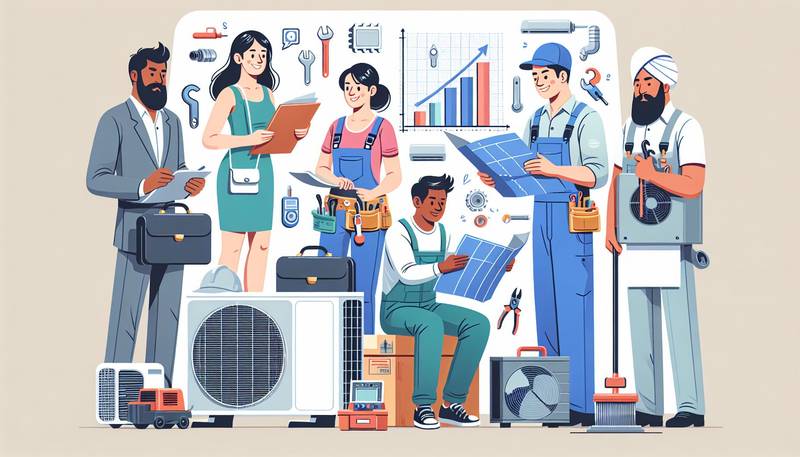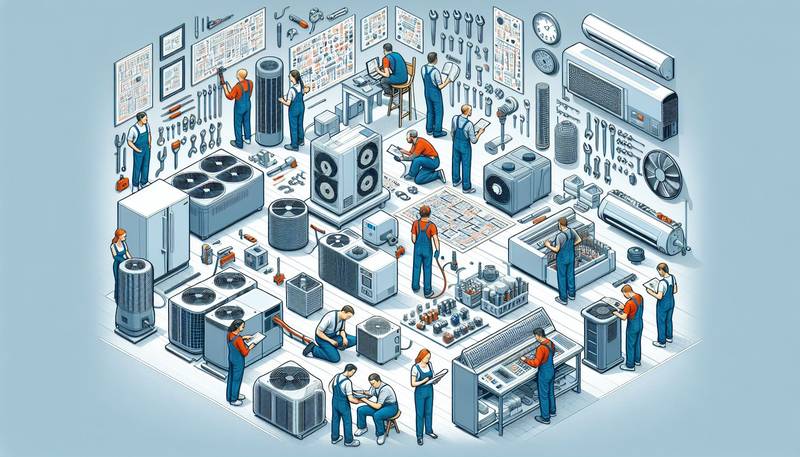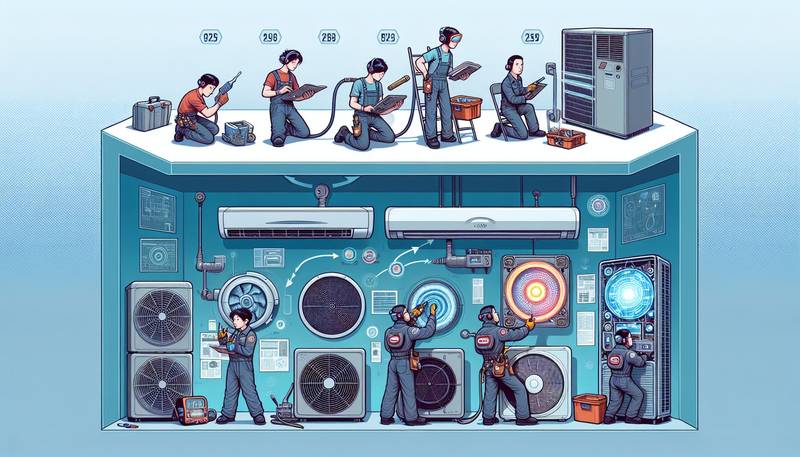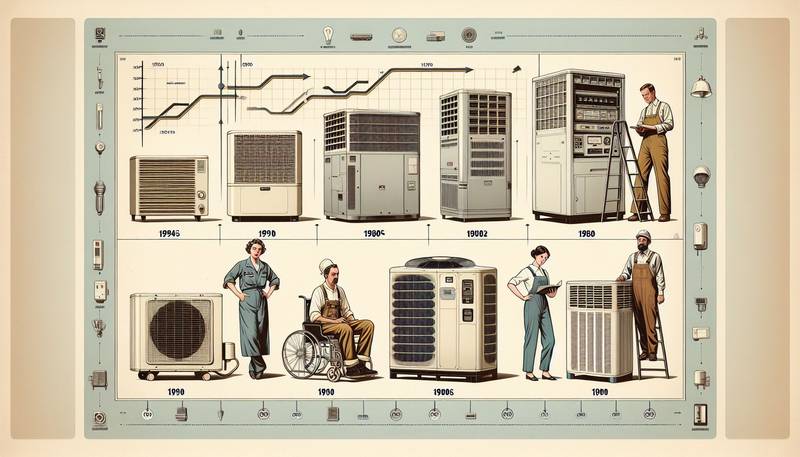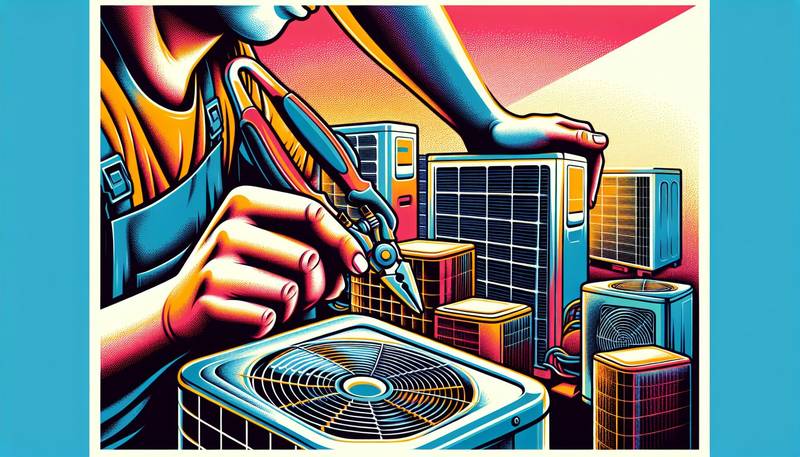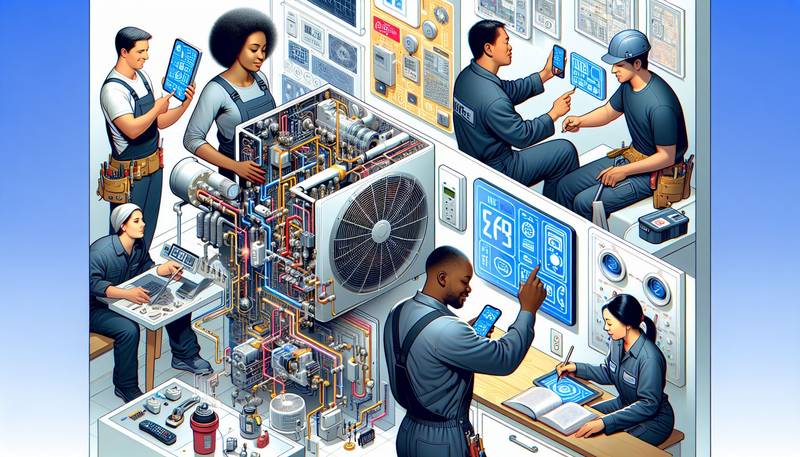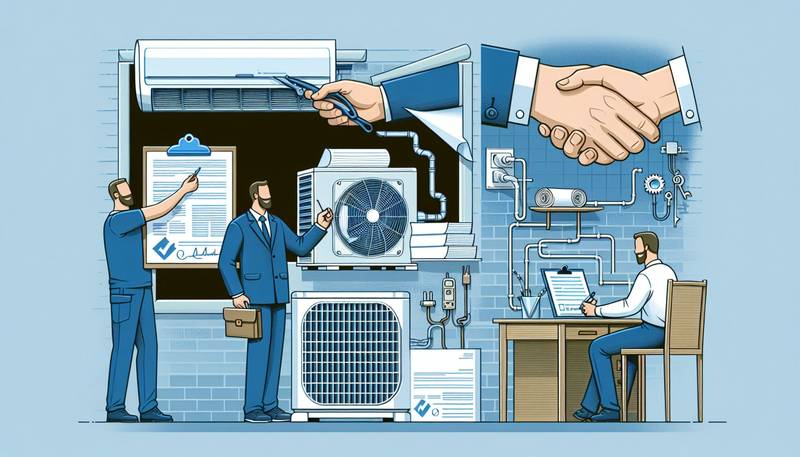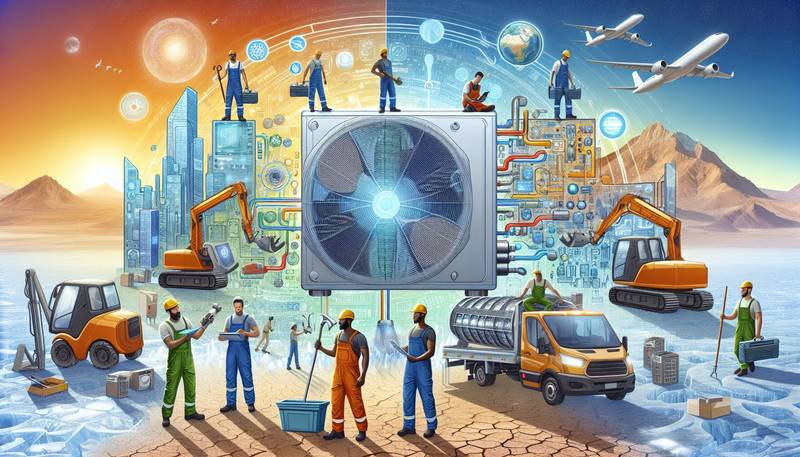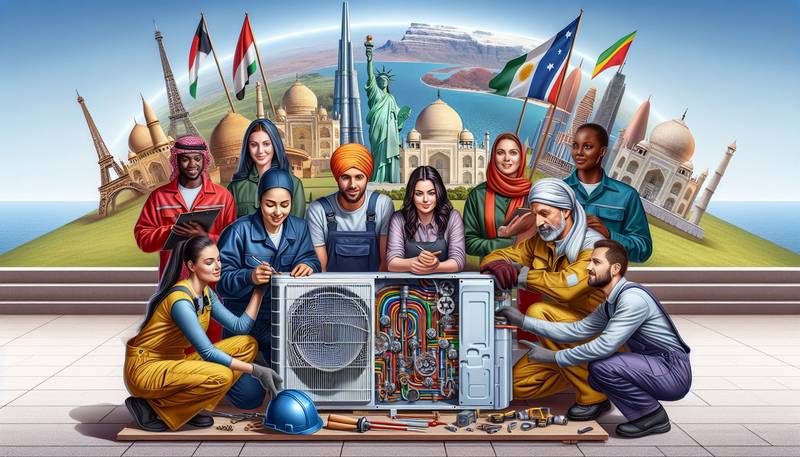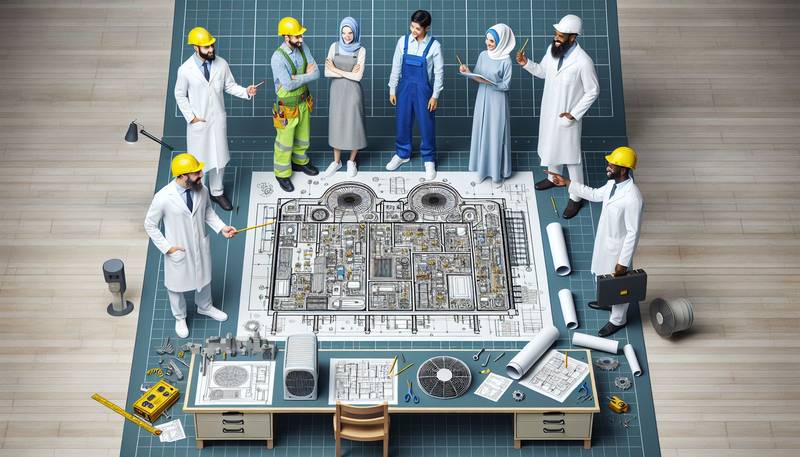Exploring Career Opportunities in the Air Conditioning Industry
The Importance of Air Conditioning
Air conditioning plays a vital role in maintaining comfortable indoor temperatures, especially in regions with extreme climates. In addition to providing comfort, air conditioning systems also help improve indoor air quality, reduce humidity, and protect sensitive equipment in commercial and industrial settings. Given the essential nature of air conditioning systems, there is a constant need for skilled professionals to install, maintain, and repair these systems.
Career Paths in the Air Conditioning Industry
There are several career paths available within the air conditioning industry, ranging from entry-level positions to specialized roles. Some of the most common career opportunities include:
HVAC Technician: HVAC technicians are responsible for installing, maintaining, and repairing heating, ventilation, and air conditioning systems. This role typically requires a combination of technical skills, problem-solving abilities, and customer service skills.
HVAC Engineer: HVAC engineers design and oversee the installation of air conditioning systems in residential, commercial, and industrial buildings. They may also be involved in conducting energy audits, developing energy-efficient solutions, and ensuring compliance with industry regulations.
Refrigeration Technician: Refrigeration technicians specialize in installing and maintaining refrigeration systems, including commercial refrigerators, freezers, and air conditioning units. They are trained to work with various refrigerants and must follow safety protocols to prevent leaks and environmental damage.
Sales and Marketing: The air conditioning industry also offers opportunities in sales and marketing, where professionals promote and sell air conditioning systems to residential and commercial clients. Sales roles may involve developing sales strategies, preparing quotes, and negotiating contracts with customers.
Skills and Qualifications
To succeed in the air conditioning industry, individuals need a combination of technical skills, industry certifications, and relevant work experience. Some of the key skills and qualifications required for a career in the air conditioning industry include:
- Technical Knowledge: A solid understanding of HVAC systems, refrigeration principles, and electrical components is essential for working in the air conditioning industry.
- Certification: Many employers require HVAC technicians to hold certifications from organizations such as the North American Technician Excellence (NATE) or the Refrigeration Service Engineers Society (RSES).
- Problem-Solving Skills: HVAC technicians and engineers must be able to diagnose and troubleshoot issues with air conditioning systems to ensure they function properly.
- Physical Stamina: Installing and repairing air conditioning systems can be physically demanding, requiring technicians to lift heavy equipment and work in confined spaces.
- Customer Service Skills: HVAC professionals often interact with customers, so strong communication and interpersonal skills are essential for building positive relationships and ensuring customer satisfaction.
Training and Education
There are several pathways to enter the air conditioning industry, including vocational training programs, apprenticeships, and formal education. Many community colleges and trade schools offer HVAC programs that provide hands-on training in system installation, maintenance, and repair. Additionally, some employers offer apprenticeship programs that allow individuals to gain practical experience under the supervision of experienced technicians.
Job Outlook and Salary
The job outlook for careers in the air conditioning industry is promising, with strong demand for skilled professionals in both residential and commercial settings. According to the Bureau of Labor Statistics, the median annual wage for HVAC technicians was $50,590 in May 2020, with opportunities for advancement and specialization.
In conclusion, the air conditioning industry offers a wide range of career opportunities for individuals with the right skills and qualifications. Whether you are interested in becoming an HVAC technician, engineer, or sales professional, there are numerous paths to explore within this dynamic and essential industry. By pursuing the necessary training and certifications, you can build a rewarding career in the thriving field of air conditioning.
